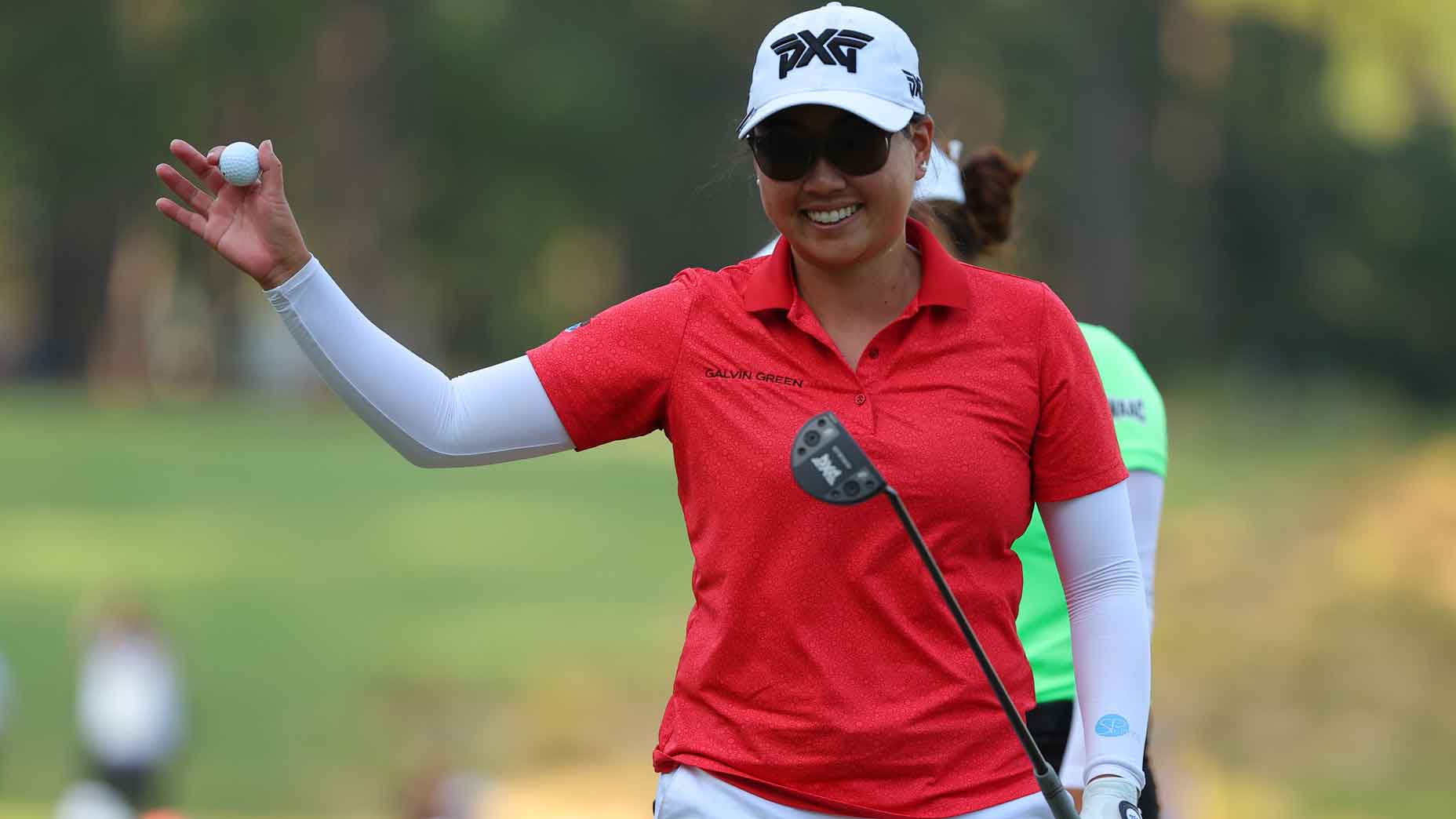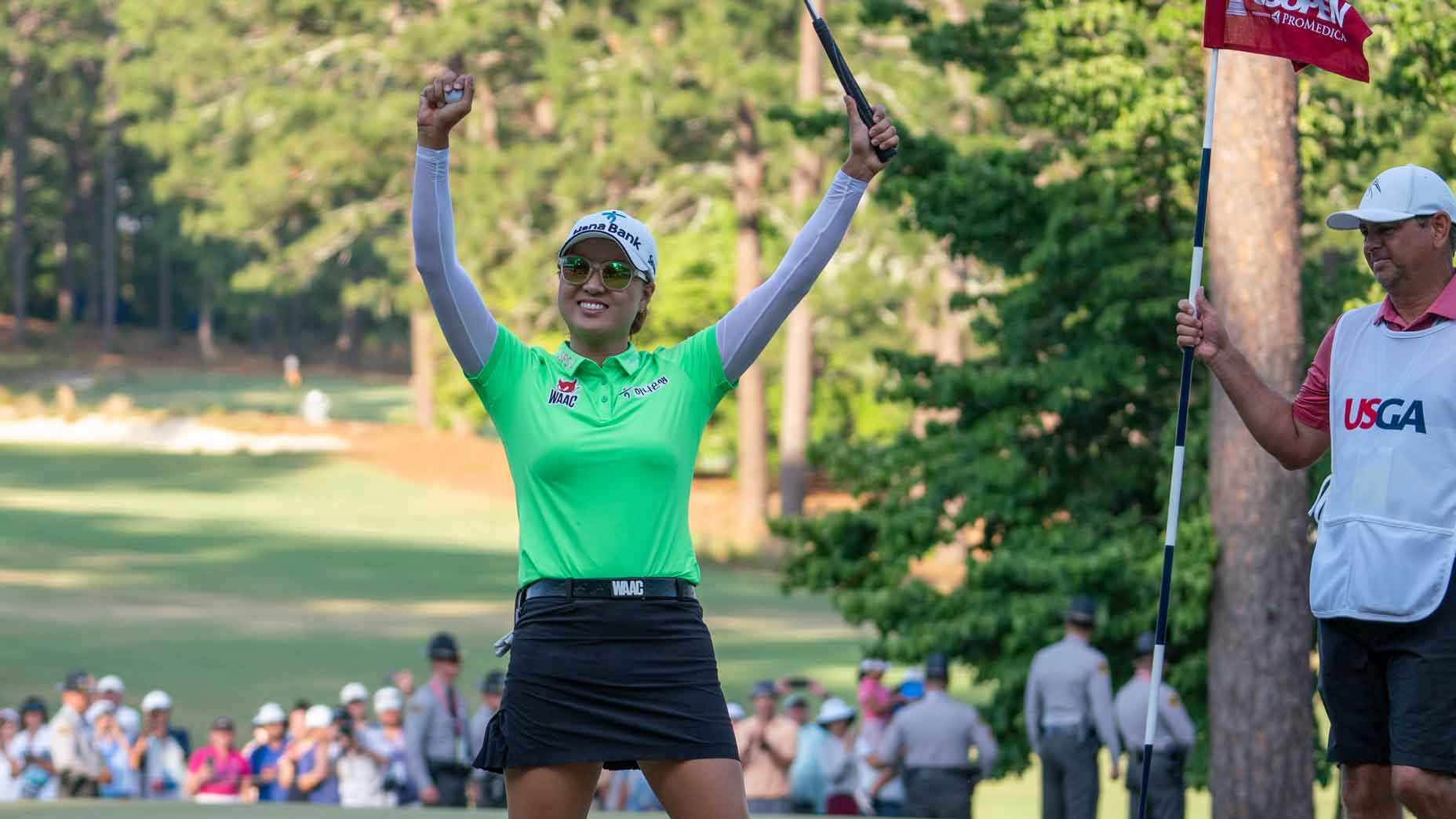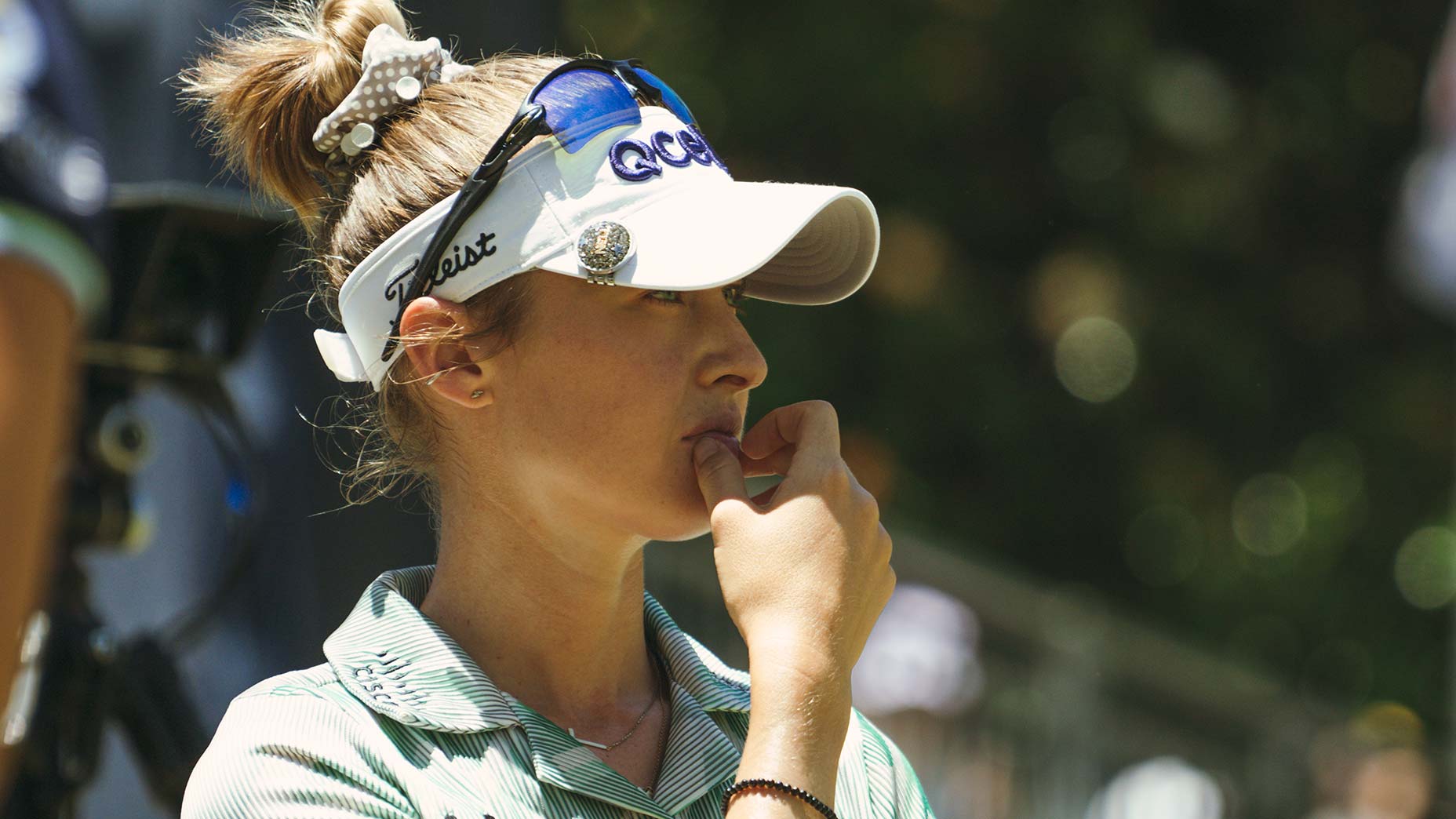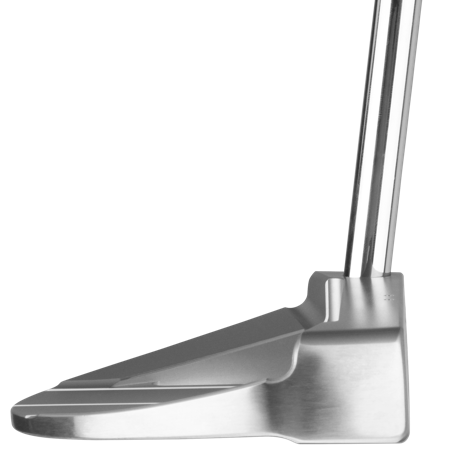
Mina Harigae fell short of winning her first major championship, but that doesn’t mean her week at Pine Needles was a disappointment.
Getty Images
SOUTHERN PINES, N.C. — As the final putt of the 77th U.S. Women’s Open dropped, and a swarm mobbed the green to douse the victor, Minjee Lee, in champagne, Mina Harigae exited the 18th green and walked toward the scoring area.
She was grinning from ear to ear.
You don’t often see the runner-up at a major championship so happy in the moments after defeat, but for Harigae, there was plenty reason to be gleeful.
For one, Harigae, a 12-year LPGA Tour veteran, had never played this well on this big a stage. For 72 holes, she went toe-to-toe with the best players on earth, and in the end, just one of them bested her. The finish was (by far) her best career major performance, and her first-ever major top 10.
“I’m proud of myself,” Harigae said. “The main takeaways are I really am able to handle myself out there. I belong up there.”
But beyond the stellar play, and the proof to herself that she can hang with the best of the best, Harigae’s life also changed in a financial sense. With the U.S. Women’s Open — buoyed by title sponsor ProMedica — increasing this year’s purse to a whopping $10 million, there was plenty to play for, even if the final margin was a rout.

Mina Harigae smiles as she walks off the 18th green.
Getty Images
“I’m not going to lie, my stomach hurt the last couple holes,” Harigae said. “I was really stressed out.”
The reason for the nerves? Harigae was still playing for the largest second-place prize in women’s golf history. And so long as she could hang on to that solo second standing, she’d be in line for a $1 million payday.
The fact that Harigae pocketed seven-figures is remarkable when considering the trajectory of her career. Although the 32-year-old has stuck around the LPGA Tour for more than a decade, she’s never won. Her career earnings heading into the week were just north of $3 million — hardly a figure to scoff at — but in the world of pro golf, those funds dry up quickly.
Just two years ago, when the pandemic took hold and the world stood still, Harigae hit rock bottom. She’d missed seven cuts in a row to end 2019, and she had to go back to Q school just to keep her card. She was successful in the endeavor, but she didn’t have a chance to capitalize. One start into her 2020 campaign, the tour shut down and she was left without a means to pay her bills.
“I felt very helpless,” Harigae told Golfweek’s Beth Ann Nichols in 2021. “It felt like I was racing against time … The walls were closing in on me.”
Desperate to bring in any sort of income, Harigae turned to playing in mini-tour events. She won four times on the Cactus Tour during the LPGA’s hiatus, earning roughly $2,500 per victory, and kept her head above water until the Tour returned.
A little less than two years later, Harigae played herself into the final pairing at a major. And even though her quest to win came up short, it did not dampen her spirits.
“This is definitely the top one or two highlights of my career,” Harigae said Sunday evening.
It’s not hard to envision her adding to that reel in short order.












